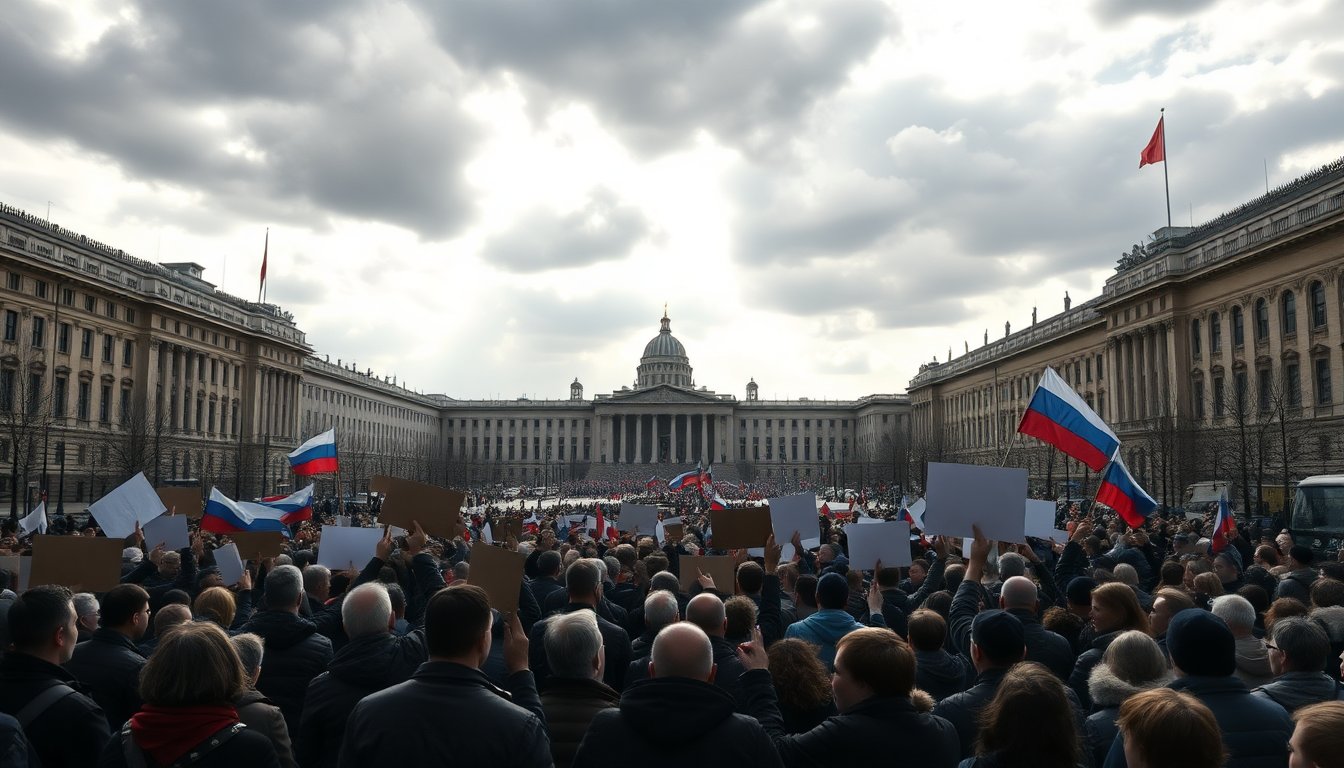Table of Contents
The political landscape in Russia is increasingly tense as the government escalates its efforts to suppress dissent and independent media. Reports indicate a significant rise in terrorism charges against those opposing the regime. This crackdown aligns with heightened military readiness throughout Europe, where nations are conducting nuclear drills amid ongoing tensions. As Ukraine continues to seek financial assistance, the geopolitical climate remains fraught.
One of the most concerning developments is the Russian Supreme Court’s impending review of a lawsuit aimed at designating the Anti-Corruption Foundation (ACF) as a terrorist organization. This classification, the most severe legal designation available, could severely restrict the group’s operations both within Russia and abroad. Leonid Volkov, a co-founder of the ACF with the late opposition leader Alexey Navalny, has cautioned that this label could lead to increased hostility towards exiled activists.
Broadening of terrorism definitions
Recent amendments to Russia’s criminal code have raised serious concerns regarding the expanded definitions of terrorists and extremists. Under the new regulations, individuals can be labeled as terrorists for merely discrediting the military or disseminating unapproved information about the conflict in Ukraine. This shift has resulted in what some observers describe as a civic death, placing those targeted under severe restrictions that hinder their access to vital services, including banking and employment.
International repercussions
Meanwhile, the European Union faces significant security challenges as reports highlight drone incursions near military installations. A recent article in The New York Times indicates that current detection methods may be insufficient to address these threats, which are primarily linked to provocations from Russia. This situation raises concerns about European nations’ preparedness to respond effectively to potential escalations.
Energy politics and sanctions
In the energy sector, dynamics are evolving as Russia attempts to navigate the sanctions imposed by Western nations. Despite an executive order from President Putin allowing Exxon Mobil to reclaim its stakes in the Sakhalin-1 oil and gas project, the company is still focused on withdrawing from the venture. Furthermore, Russia plans to deliver approximately 750,000 barrels of sanctioned oil to Syria, highlighting the intricate nature of global energy politics.
As the European Union prepares to implement additional sanctions against Russia, it will target several companies suspected of circumventing restrictions related to the Chinese oil sector. Hungary is also considering ways to diversify its nuclear fuel sources, signaling a readiness to engage with the United States while preserving its connections with Russia.
Tensions between the U.S. and Russia
In a separate development, tensions have escalated between the United States and Russia following a report by The Wall Street Journal. The report alleged that the Trump administration had lifted restrictions on Ukraine’s use of long-range missiles supplied by Western allies. In response, Trump dismissed the report as fake news, emphasizing that the U.S. had no involvement in the situation. This denial underscores the ongoing complexities of U.S. foreign policy and its repercussions for the conflict in Ukraine.
The ongoing situation illustrates how domestic repression and international tensions are reshaping the geopolitical landscape. These developments have significant implications beyond Russia’s borders, impacting global human rights and security frameworks.


